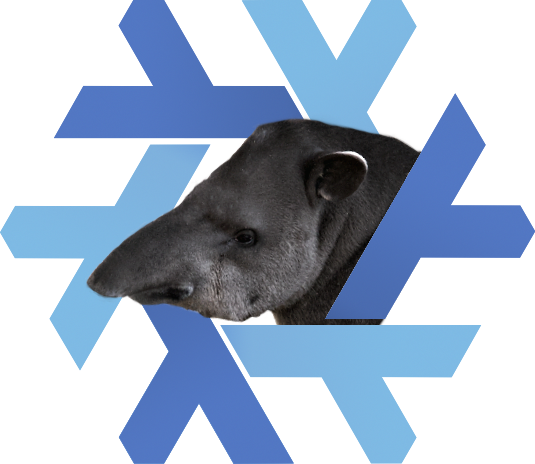
Figure 1: Official image for 23.11
Upgrading my workstation to 23.11 wasn’t as simple as I was hoping. Ran into a few issues.
§Performing the upgrade
I’m using a flake, so all I should have to run is:
# First edit flake.nix so it points to release-23.11.
nix flake update
nixos-rebuild boot --flake .#
(Then systemctl reboot into the new generation that includes a new kernel.)
§Issue #1: pinentry package changes
I can’t unlock any keys using gpg-agent (hence cannot use GPG keys for accessing my password database and send signed documents). Started when I booted into my 23.11 generation. Booting back into 23.05 fixed the issue, but that’s not a long term solution because 23.05 is marked as deprecated and will be removed soon.
journalctl --user gpg-agent.service shows that it can’t find
/usr/bin/pinentry-gnome3:
Dec 27 14:51:40 stargate gpg-agent[4964]: can't connect to the PIN entry module '/usr/bin/pinentry-gnome3': IPC connect call failed
Dec 27 14:51:40 stargate gpg-agent[4964]: failed to unprotect the secret key: No pinentry
Dec 27 14:51:40 stargate gpg-agent[4964]: failed to read the secret key
It appears I have this line in ~/.gnupg/gpg-agent.conf:
pinentry-program pinentry-gtk2
When I comment this pinentry-program directive out, then invoke systemctl --user restart gpg-agent.service, functionality is restored. KDE’s Pinentry
is used in KDE. Not sure why, exactly. It appears to neither use my NixOS
flake’s programs.gnupg.agent.pinentryFlavor or I haven’t rebuilt my flake
correctly.
Another weird behavior - once or twice it tried to store keys in what appeared to be a newly-created kwallet. It prompted me for a passphrase to protect the typed passphrase with. I closed the prompt and it prompted once more. Closed it again. Hasn’t pestered me since.
§Post-upgrade note
The issue occurred again. Verified that pinentry-program directive is not
present in the configuration. Restarted gpg-agent.service user service.
Fixed the issue. Confusing and not sure what happened here.
§Issue #2: docker storage was failing on upgrade
winston@stargate ~ $ sudo journalctl -u docker.service --follow
Dec 29 18:32:05 stargate dockerd[174409]: time="2023-12-29T18:32:05.514367385-06:00" level=info msg="stopping healthcheck following graceful shutdown" module=libcontainerd
Dec 29 18:32:05 stargate dockerd[174409]: time="2023-12-29T18:32:05.514408232-06:00" level=info msg="stopping event stream following graceful shutdown" error="context canceled" module=libcontainerd namespace=plugins.moby
Dec 29 18:32:06 stargate dockerd[174409]: failed to start daemon: error initializing graphdriver: prior storage driver devicemapper is deprecated and will be removed in a future release; update the the daemon configuration and explicitly choose this storage driver to continue using it; visit https://docs.docker.com/go/storage-driver/ for more information
Dec 29 18:32:06 stargate systemd[1]: docker.service: Main process exited, code=exited, status=1/FAILURE
Dec 29 18:32:06 stargate systemd[1]: docker.service: Failed with result 'exit-code'.
Dec 29 18:32:06 stargate systemd[1]: Failed to start Docker Application Container Engine.
Dec 29 18:32:08 stargate systemd[1]: docker.service: Scheduled restart job, restart counter is at 3.
Dec 29 18:32:08 stargate systemd[1]: docker.service: Start request repeated too quickly.
Dec 29 18:32:08 stargate systemd[1]: docker.service: Failed with result 'exit-code'.
Dec 29 18:32:08 stargate systemd[1]: Failed to start Docker Application Container Engine.
The error message failed to start daemon: error initializing graphdriver: prior storage driver devicemapper is deprecated and will be removed in a future release is particularly interesting. This forum post suggests docker may have
chosen the wrong storage engine on startup. This can happen when configuration
changes or if auto-detection chooses the wrong driver.
The solution is to add the following code to your configuration.nix:
virtualisation.docker.storageDriver = lib.mkDefault "devicemapper";
I am not sure why virtualisation.docker.storageDriver option defaults to
null instead of a predictable default like overlay.
§Conclusion
I’m pleased that I can now use 23.11. I’ve been a NixOS user since mid-2022 have deployed it on multiple architectures, headless and graphical. It’s a very cool place to test out new ideas. I’m not sure if I am going to be relying on NixOS for services that I depend on in the future, though. Too much churn. I need something that isn’t a surprise every time I look into doing something with it. Need something more predictable. Might be Debian Testing with nix daemon and Ansible. Stay tuned.